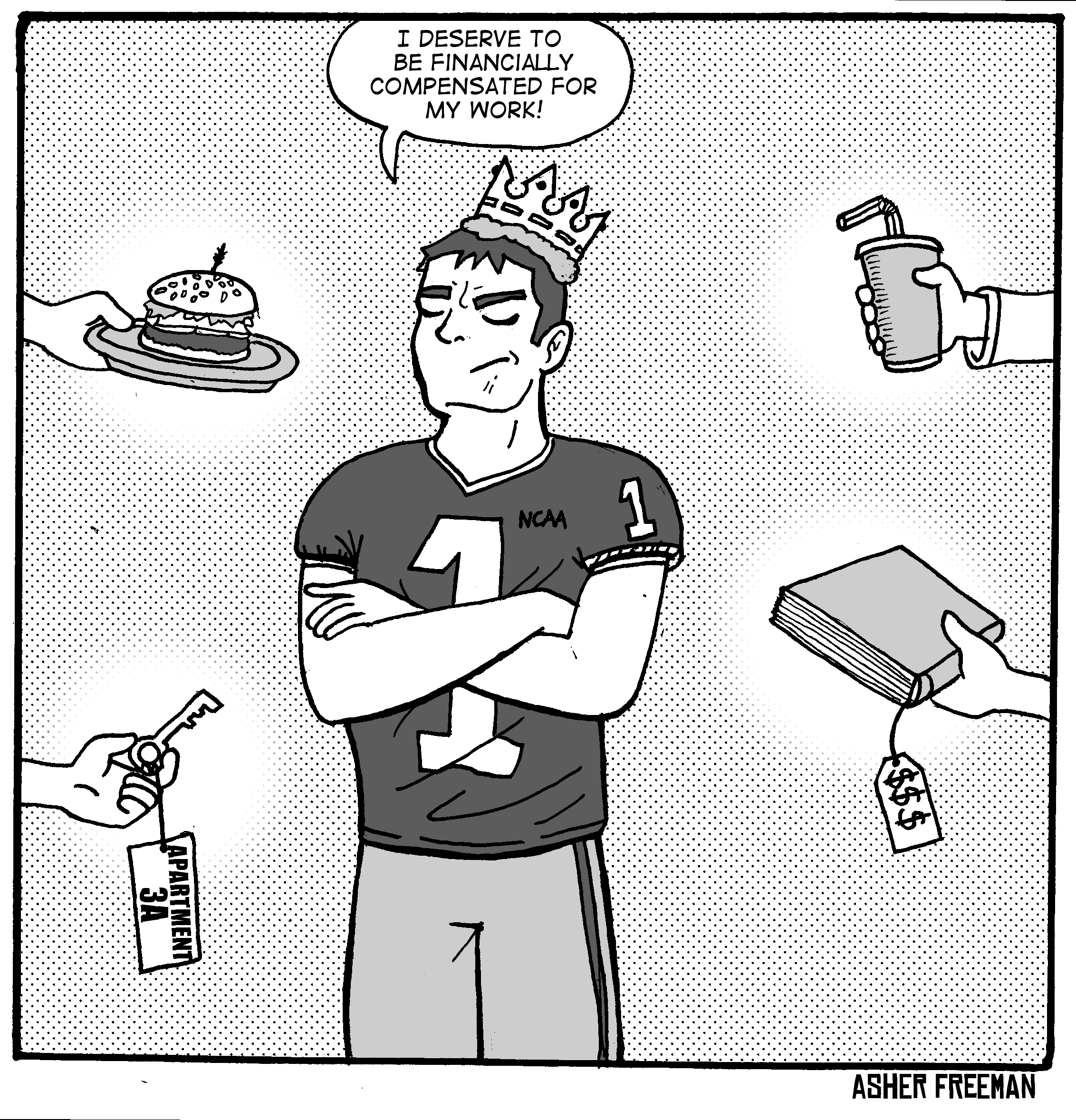The argument of whether or not college athletes should be
compensated is an issue that has been discussed for many years. Despite the NCAA’s punishments, many colleges
such as SMU have been caught paying recruits, and nearly every successful team
faces some adversity in this regard. There have also been many individual athletes,
such as Cam Newton or Terrelle Pryor who have been investigated or caught
breaking NCAA rules through the selling or merchandise. On the other side,
while players and colleges get punished, the NCAA and other organizations have
made billions of dollars using the players for their own personal gain. According
to USNews, the NCAA makes “6 Billion Annually”. The NCAA tends to argue that
the athletes are student athletes, and as students should not be compensated.
The issue here is that both arguments seem pretty sound, and in all honesty, it
doesn't seem right that the NCAA nor the players receive the money. Clearly,
what’s at stake here is billions of dollars in revenue, as well as the line
between college and pro athletics. If college athletes are compensated, then
what will the effect be on the professional leagues? If the NCAA keeps the
rules the way they are now, it is likely that all will remain the same.
However, if a third party one day decides that the money should be taken from
the NCAA, the results could be enormous. The NCAA would more than likely cease
to exist, scholarships may decrease because the schools would be giving money
to the athletes, and many other large changes to not only sports, but culture
and society as well would occur. The value of sports in society could fluctuate;
the price of college could rise due to colleges needing money that they used to
earn from college athletes, the number of scholarships would definitely
decrease. This is all speculative, but the results of this debate are much
larger than many people fathom. As the Courier Journal points out, all of this could most definitely decrease the number of jobs, due to a decrease in sports as a business, as well as the loss of scholarships.
The audience in this debate is, in all honesty, is any
American who has, wishes to, or has kids who plan on attending college and receiving
a job. As Huffington Post points out, the percent of those with a degree who are unemployed is 5% lower than the percent of those unemployed without a degree. If scholarships reduced, college prices jumped, or colleges lost
funding due to the enormous cost of compensating past and present college athletes,
the effects would be seen on every American throughout society. Every person
has a piece of the pie at stake in this discussion, from the universities and
NCAA, wishing to preserve their wealth, to the players, wishing to get a piece
of the action from their own achievements, to parents, who hope to send their
kids to college one day. People can be easily persuaded by the big numbers that
the NCAA rakes in, but they rarely hear of the consequences of compensating collegiate
athletes.

No comments:
Post a Comment